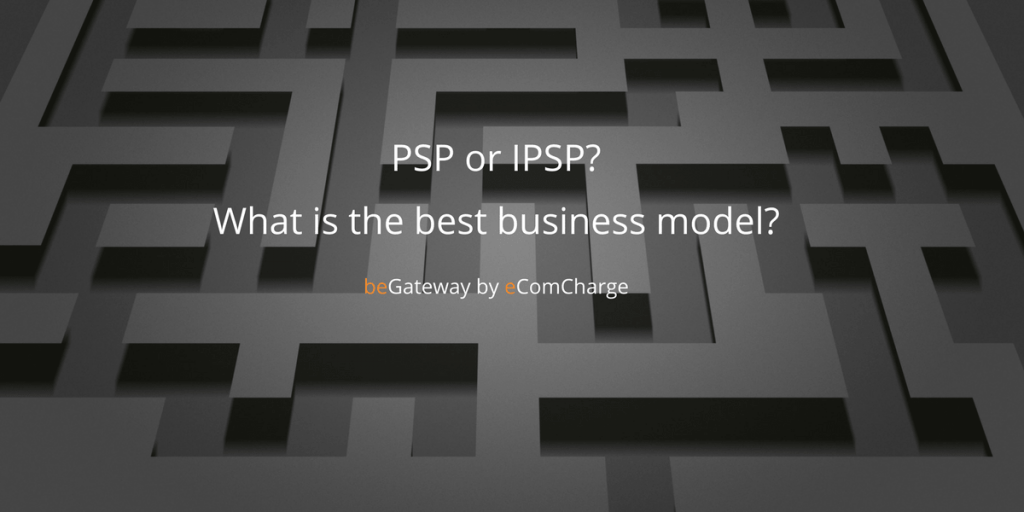How to start a payment processing company? There are two basic models of online payment acceptance services.
1. Under the first model, you deal with purely technical issues of Internet payments:
- Opening a merchant account for the Internet merchant at the acquiring bank
- Providing online merchants with a convenient and secure payment page
- Arranging a simple single integration with various payment systems
- Protecting your online merchant from fraud
- Consulting your merchants and their buyers, etc.
But you don’t touch your merchants’ money, leaving the issues of monetary compensation for the processed payment transactions (or, to put it simply, payment issues) to the acquiring banks in case of card payments; and to the payment systems, in case of electronic money, prepaid vouchers and other payment means.
In fact, the payment service provider that uses such a business model is a purely processing company (the generally accepted term is PSP, Payment Service Provider).
2. The second model is an extension of the first one.
With the second model, besides all technical issues related to online payment acceptance, you assume responsibility for payouts to your merchants.
I.e. you accept payments made by buyers on behalf of your online merchants, put it in your account at the acquiring bank or any other payment system you work with. Then you make payouts for the payments.
The payment service provider who chooses this business model is called a payment aggregator (also called IPSP, Internet Payment Service Provider).
Each of the two business models has its advantages and benefits.
Advantages of being a payment aggregator/ Internet Payment Service Provider
Being a payment aggregator means having more freedom and flexibility in providing services to Internet merchants and being less dependent on acquiring banks and partners in making decisions.
If you are a payment aggregator, you can, for example:
- Offer your merchants account activation and payment acceptance on the same day they register with your payment system.
- Set the payout pattern convenient both for you and for your merchant.
- Assign individual maintenance fee, etc.
When it comes to card payments, an aggregator can become a member of VISA and Mastercard payment systems, dispense with the services of an acquiring bank, and charge the Internet acquiring fee usually charged by the acquiring bank.
However, such freedom of action and prospects costs a lot in terms of money, effort, and time you spend to become a payment aggregator. The activities related to the transfer of funds, (when money from third party goes through your bank and other accounts) is licensed and controlled practically in any country of the world . I.e., to become an IPSP, your company must get a permission (license) for financial activities from the regulator of the country where your business is registered. The regulator is usually the Central Bank, or a special government agency controlling financial companies and payment organizations.
Depending on the country and your luck, obtaining a license for a payment institution (PI license) can take anywhere from six months up to a year and a half and, in any case, requires rather hard work preparing all necessary documents. Besides, it takes considerable financial expenses to bring the company’s authorized capital in line with the license requirements, or to establish the so-called insurance deposit, if needed.
Advantages of being a processing company/Payment Service Provider
A processing company does not require any license to help business accept payments for their goods and services. It is enough to comply with the security standards adopted in the payment industry, the essence of which is to prevent unauthorized access to sensitive payment data of online buyers. The main standard here is PCI DSS (Payment Cards Industry Data Security Standard).
However, in this case, you find yourself at the mercy of acquiring banks and other partners that process online payments. For example, it make take up to a month to open and register a merchant account in the payment systems of the acquiring bank; your commission for Internet merchant depends on the acquiring bank’s commission (the higher the commission of the bank, the lower your margin), etc.
If you plan to provide services to accept card payments via the Internet, either as a processing company or as a payment aggregator, your company will have to undergo PCI DSS certification annually. This is not an easy process, but it can be avoided if you hire a certified platform, but more on that later.
Taking into account the complexity, cost and duration of becoming a payment aggregator, we recommend new payment companies to start with providing purely processing services. Try working as a PSP (Payment Service Provider/processing company) for a while, and then, if the business develops rapidly and requires more possibilities, proceed to the payment aggregator business model (IPSP).
Getting a payment organization license is always easier for an established processing company that has reached certain success, than for an absolute newbie who does not have any history of service providing.
Next. Part 3. How to choose software to provide online payment acceptance services.
Pervious. Part 1. What means of payment to work with (integrate).
